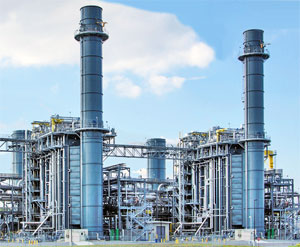
Qatar commits to fourth new LNG train, boosting capacity to 110 million mt/year


In a statement Wednesday, company CEO Saad Sherida al-Kaabi said the new capacity increase would "further strengthen our leading position as the world's largest LNG producer and exporter."
Qatar Petroleum revealed in July last year plans to raise the country's LNG production capacity from 77 million mt/year to 100 million mt/year, with the first LNG production from the new trains due online by the end of 2023.
The move followed the lifting of the moratorium on the development of the giant offshore North Field.
At the time, there were plans to study the possibility of a fourth train, depending on market conditions.
"Based on the good results obtained through recent additional appraisal and testing, we have decided to add a fourth LNG mega-train and include it in the ongoing front-end engineering of the project," al-Kaabi said.
"When the project is completed and all four new trains are online, Qatar's LNG production capacity will reach 110 million mt/year," al-Kaabi said.
TIGHTER MARKET
The LNG market is expected to tighten significantly in the period after 2021 due to a lack of financial investment decisions for new production projects globally over the past few years.
Qatar is well-placed to compete with any other LNG supplier because it has very low LNG production costs due to the co-production of NGLs from the North Field.
LNG demand is set to grow strongly, according to industry officials, with Novatek CEO Leonid Mikhelson predicting the global market could even hit 700 million mt/year by 2020 from around 300 million mt/year now.
"We believe that LNG has bright prospects, and that the new expansion project reflects Qatar Petroleum's commitment to meeting its worldwide customers' growing needs for this reliable and environmentally friendly fuel," al-Kaabi said.
With the addition of the fourth train, the new project will produce about 32 million mt/year of LNG, 4,000 mt/d of ethane, 260,000 b/d of condensate, and 11,000 mt/d of LPG, Qatar Petroleum said.


Trump weighs using $2 billion in CHIPS Act funding for critical minerals

Codelco cuts 2025 copper forecast after El Teniente mine collapse

Electra converts debt, launches $30M raise to jumpstart stalled cobalt refinery

Barrick’s Reko Diq in line for $410M ADB backing

Abcourt readies Sleeping Giant mill to pour first gold since 2014

Nevada army depot to serve as base for first US strategic minerals stockpile

SQM boosts lithium supply plans as prices flick higher

Viridis unveils 200Mt initial reserve for Brazil rare earth project

Tailings could meet much of US critical mineral demand – study

Kyrgyzstan kicks off underground gold mining at Kumtor

Kyrgyzstan kicks off underground gold mining at Kumtor

KoBold Metals granted lithium exploration rights in Congo

Freeport Indonesia to wrap up Gresik plant repairs by early September

Energy Fuels soars on Vulcan Elements partnership

Northern Dynasty sticks to proposal in battle to lift Pebble mine veto

Giustra-backed mining firm teams up with informal miners in Colombia

Critical Metals signs agreement to supply rare earth to US government-funded facility

China extends rare earth controls to imported material

Galan Lithium proceeds with $13M financing for Argentina project

Kyrgyzstan kicks off underground gold mining at Kumtor

Freeport Indonesia to wrap up Gresik plant repairs by early September

Energy Fuels soars on Vulcan Elements partnership

Northern Dynasty sticks to proposal in battle to lift Pebble mine veto

Giustra-backed mining firm teams up with informal miners in Colombia

Critical Metals signs agreement to supply rare earth to US government-funded facility

China extends rare earth controls to imported material

Galan Lithium proceeds with $13M financing for Argentina project

Silver price touches $39 as market weighs rate cut outlook

















